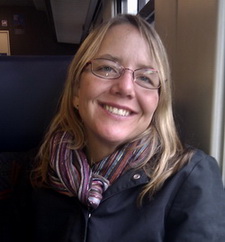About the Toxicology and Societies Speaker Series
Our Motivation for the Series
With 340,000 chemicals in commerce and untold more that humans and wildlife can be exposed to from their environment, toxicology plays a vital, but often hidden, role in our everyday lives. These impacts go beyond the obvious ones to the exposed individual and their family, as they extend throughout societies. Behaviors, cultures, economies, and resilience of both individuals and communities are among the societal components that are impacted.
Toxicology in the 21st century has to consider the measurable and traditional consequences of chemical exposure, such as disease and death, but also the effects that result in a loss of function in individuals. A loss of function is challenging to assess since people do not know what they do not have. Even more challenging is identifying how the toxicological effects in an individual have cascading consequences throughout a society. To add to the dilemma, considering the cascades of biological effects of toxicants is also not enough, as unfounded fears of toxicants can change society in unpredictable ways.
The focus of this speaker series is to provide understandable examples of how events with a toxicological component have consequences to people and societies. With these examples, we will highlight what we know about toxicology, how societies can be impacted, and consider how people can understand and respond to these complex issues.
About the Co-Hosts

Dr. Ruth Sofield is a Professor of environmental toxicology and chemistry in the College of the Environment. She received her Ph.D. and M.S. in Environmental Science and Engineering at the Colorado School of Mines. Ruth’s research group focuses on the effects of water and air pollution. Their current projects include the aquatic toxicity of microplastic and tire wear particles, and the use of moss as a biomonitoring tool for particulate matter. Ruth is a member of the Puget Sound Partnership Science Panel and the President of the Pacific Northwest Society of Environmental Toxicology and Chemistry. Learn more about her work.

Dr. Tracy Collier received his Ph.D. in Fisheries Sciences from the University of Washington. He has worked for over 45 years as a toxicologist, with more than 35 of those years spent at NOAA’s Northwest Fisheries Science Center, where he served as the director of a science division that employed up to 100 people, that covered several disciplines, including environmental toxicology, analytical chemistry, harmful algal blooms, and watershed processes.
Since ‘retiring’ from NOAA, he has also served on, and for some time was chair of California’s Delta Independent Science Board, tasked with helping to sort out the thorny problems of managing water in the Sacramento/San Joaquin Delta, including the harm to water quality from toxic chemicals. He has also served as the Science Director for the Puget Sound Partnership, the Science Advisor to NOAA’s Oceans and Human Health Initiative, a consultant for First Nations opposed to pipeline construction or expansion through their land, and a consultant to NOAA for the Deepwater Horizon oil spills, injuries to natural resources in Portland Harbor and the Lower Duwamish Waterway, and for injuries to marine mammals at a site in Georgia. He has over 175 scientific publications, and currently is an affiliate faculty at Western.